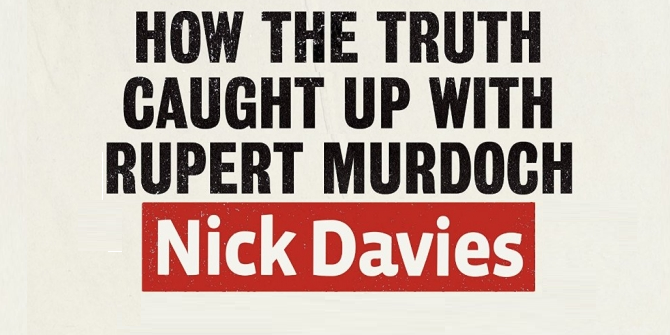Polis Intern and LSE MSc student Jessica Di Paolo reports on the latest Polis Media Agenda Talk featuring Jamie Bartlett, author of the book Dark Net and Director of the Centre for the Analysis of Social Media.

“Participation is both a form of violence and a form of pleasure. More than a desire, participation is an urge, a form of coercion imposed by the system. Participation in the network is a template for being social, for belonging. It is perceived as socially rewarding. It gives the illusion of making us more social.” (“Electronic Mediations, Volume 41 : Off the Network : Disrupting the Digital World” Mejias, Ulises Ali).
Internet trolls, drugs markets, pro-suicide forums, pro-anorexia communities. These are only a few of the stories hidden behind the dark net. When thinking about the digital world, we tend to consider just some aspects of this dark side; limited participatory culture, the illusion of being part of a public sphere, self-obsession, and the insatiable desire of being rewarded and recognised in cyberspace.
But, as Jamie Bartlett rightly points out, “There is more than this on the net. We never know what really is going on online. Is it really as bad or as terrifying as some people believe? And more importantly, who are the people that actually create these innovative and sometimes disturbing communities?”
Why is it called the dark net ?
“It is not necessarily because everything in the net is dark, but because it’s obscure, it’s not very well known, and we need to explore it carefully. I tried to understand what people operating in the dark net wanted to do. So I moderated an internet trolling group, followed nationalist Facebook movements, used bitcoins, spent time on pro-anorexia and pro-suicide forums, brought drugs from the Silk Road 2.0, attended an Internet sex show.”
Jamie Bartlett’s presentation on his new book “The Dark Net” had two completely different effects on me. On the one hand, I was fascinated by the power of being anonymous online. Under the conditions of freedom and anonymity, we have the chance to express ourselves, to be involved and conduct debates without fear of judgement. We are free to be someone else. On the other hand, this massive anonymous participation is leading to the creation of troubling phenomena such as pro-anorexia websites or pro-suicide forums. What surprised me the most was how social platforms are exploited in order to reproduce certain extreme behaviours. Terms like “friending”, “liking”, “social”, “join”, are used as a kind of “friendly violence” which pushes users to join a website only because all of their friends are doing it.
“Thinspiration” on Instagram
“Thinspiration” is just one example of the dark side of the net. Check out on Instagram and you will find lots of pictures posted by girls who want to be “skinny and perfect”. Quotes like “Do it for the thigh gap”, “Weight loss inspiration,” “Starve to death,” “Do not reward yourself with food, you are not a dog,” encourage women who suffer from this illness “to make anorexia a life-style choice,” says Bartlett.
In a virtual community anonymity plays a central role. Vulnerable young girls find in a picture or in a forum the support they don’t have in their daily life. It’s interesting that the forum’s popularity stems from a very caring and supportive atmosphere between the forum’s members. They are always there; the Internet will always welcome you, no matters who you are. And thanks to the anonymity, you can be honest, because you won’t be judged.
Should these forums/communities be monitored? Who is responsible for the spread of these disturbing platforms? To solve the problem, Instagram adopted policing measures such as pop-up disclaimer for #ana and #mia with a link to the American National Eating Disorders website. But they didn’t have success.
Individual responsibility online is necessary
I think that there should be an increase of individual responsibility online. Starting from schools, experts should explain to students how to deal with Web issues, such as the concept of privacy online, anonymity, and pornography. And, more importantly, I believe that through workshops and seminars which clarify both negative and positive aspects of the net, people could learn to separate their real life from the cyber community. But still, blaming the media for creating the “dark side” of the net is limited and disingenuous.
This article by Polis intern, Jessica Di Paolo
Polis Media Agenda Talks are every Tuesday at 5pm and are free and open to the public – details here
Related links:
Who are the people who clean up after internet trolls?



